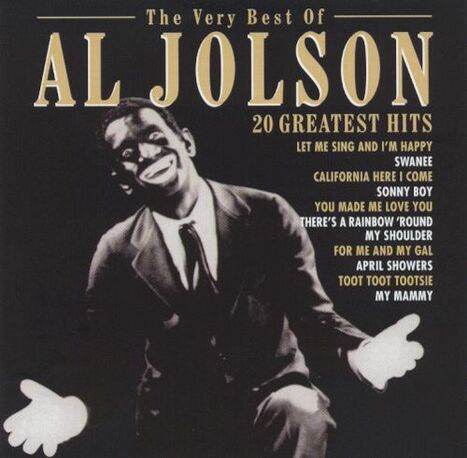This website uses marketing and tracking technologies. Opting out of this will opt you out of all cookies, except for those needed to run the website. Note that some products may not work as well without tracking cookies.
Opt Out of Cookies|
By Olivia Pierson
[First published on Incite 12/2/19] When everything is racist, nothing is racist. The term “racist” has now lost any credible meaning that it once may have had, simply because it is trotted out more mercilessly than short skirts on desperate fat girls. It is impossible to describe how absurd it is to watch Americans play out their manufactured outrage over someone who dresses up in “blackface.” Americans, black or white, who regard this practice as some form of despicable racism have completely lost their sense of judgment. When I think about Shakespearean actors, such as Laurence Olivier, who had to smear their faces in black makeup to pull off a convincing performance of Othello, I wonder if the Renaissance’s most insightful playwright could’ve imagined how this one might pan out over time? I think not. Al Jolson, who was once labeled “The World’s Greatest Entertainer”, regularly performed in blackface, bringing jazz and blues to a wider American audience. It was never done as any kind of put-down or insult to black Americans. It was pure talent and fun-loving on full display – and Americans, both black and white loved it all. To hear the so-called sin of appearing in blackface stigmatised over and over again in both left and right media outlets, as if it is some kind of shockingly evil practice, is nothing short of laughable. Who, aside from empty yapping heads and virtue-signalling simpletons, could possibly take this nonsense so seriously? The glorious world of opera will truly be in dire straits when Japanese folk start becoming hysterical over Western female sopranos donning ‘yellowface’ to play Puccini’s heroine Cio-Cio-San in Madama Butterly or the three little maids in Gilbert & Sullivan’s The Mikado. Any racially hypersensitive Orientals on the hunt to take offense could really have a field day with opera. Just think of Puccini’s Turandot, whose Chinese heroine is detached, cold and cruel with a penchant for torture – and whose three advisors are named Ping, Pang and Pong. The stereotypes in this wondrous work of art are so classically run-of-the-mill that I’m surprised it hasn’t been banned from ever being performed again in the West (I know that is debated from time to time). The formidable and deeply patriotic black American soprano, Leontyne Price (now 92), wore whiteface in order to play the role of Cio-Cio-San (Butterfly), as most women must do if a convincing portrayal of a 15 year old geisha is to be achieved. After the Ethiopian princess in Verdi’s Aida became her signature role, Price famously said, “My skin was my costume”. This quote of hers has been cited in popular culture by many writers. But much less has been made of her most recent in-depth interview, where an 84 year old Price was asked about her 1961 debut at the Metropolitan Opera where she opened the season as Leonora in Il Trovatore: “I can’t even put that into words, my dear,” she answered. “Triumph sounds stagnant to me… because it means you got somewhere and you stopped there. I felt so totally American, that’s the only way I can describe it, so richly American. My country… and I know I’ve had a lot of successes and everything, my country gave me this opportunity and this space and I was thrilled beyond belief…and I deliberately was happy that it was not my most beloved role [Aida] for many, many significant reasons, it was Il Trovatore, because that stretched being an American to me, farther than making anything an accepted debut. I felt I had conquered the world that night because my country gave me that space and I claimed it – and I will never, ever, ever forget it!” Significantly, despite Price hailing from humble beginnings in Laurel, Mississippi and living through the much vaunted racial upheavals of the 20th Century, Jim Crow and the Civil Rights movement, she was not one to even think of playing any kind of victim card, for it was simply beneath her. (This probably explains why a black woman of such outstanding achievement and fame was never invited onto the Oprah Winfrey Show.) Imitation is the sincerest form of flattery, and it’s high time that this adage was remembered again. Borrowing ideas, tastes, styles, images, clothing and words from other cultures is nothing but the natural flow of human influence which affects us all. That includes blackface, whiteface, redface, yellowface and paleface, but the only people who appear to have egg on their face are the outraged, hypersensitive twits trying to make other people feel guilty about something altogether harmless. If this silly argument about blackface is now the arena where people flock together to decry racism, either they are collectively off-their-faces or it is entirely safe to assume that real racism is now just something in the rearview mirror, like black slavery. We should chalk this up to progress folks. If you enjoyed this article, please buy my book "Western Values Defended: A Primer"
It’s only fair to share! :-)
4 Comments
Luke
22/2/2019 03:23:33 pm
Your example of Leontyne Price is outstanding. What a great American! Another great black American who loved America was Roy Campanella, the great Brooklyn Dodger.
Reply
26/2/2019 01:47:08 pm
I have always admired how you cut through the shit sweetie ;)
Reply
Olivia
26/2/2019 02:00:40 pm
Thanks Rach - and there’s so much of it everywhere. ;-)
Reply
Doug Longmire
26/2/2019 03:31:44 pm
Well said Olivia,
Reply
Leave a Reply. |
Reality Check Radio: Six Hit Shows in One Week on the Assassination Attempt on Trump. NZ is Engaged!
Post Archives
July 2024
Links to Other Blogs |

 RSS Feed
RSS Feed